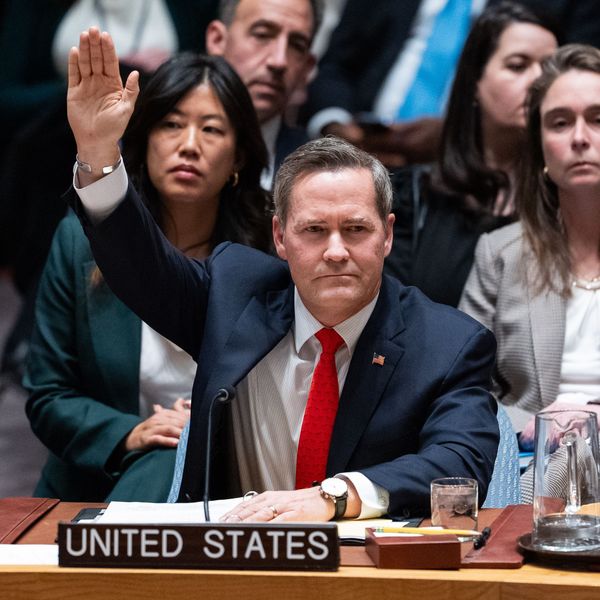What do you do if your decades-long campaign to bring about an independent Palestinian state on those fractions of historic Palestine known as the West Bank and Gaza Strip have resulted in total failure?
The answer seems to be, if you are the Western-sponsored Palestinian Authority (PA) in Israeli-occupied Ramallah, to pretend you have a Palestinian state anyway, and to get as many other countries to join in this charade as possible.
This appears to be the essence of the PA strategy to gain admittance for the "State of Palestine" to the UN General Assembly by September.
Already, the PA is lobbying hard for countries to support the move, and in recent months a number of states, particularly in Latin America, have extended full diplomatic recognition to the Ramallah authority. The New York Times cited diplomats who say that if brought to a vote in the UN General Assembly, the measure would likely pass.
A fantasy 'state'
The PA's push for recognition of a Palestinian state is the diplomatic counterpart to its much-touted "institution-building" and "economic development" efforts which are supposed to create the infrastructure for a future state.
But the institution-building program is nothing more than a mirage, boosted by public relations tricks and good press.
In fact, the main "institutions" the PA has built are the police-state and militia apparatuses used to repress political opposition to the PA and any form of resistance to Israeli occupation. Meanwhile the economy of the West Bank, and the PA itself, remain completely dependent on foreign aid.
UN recognition of a Palestinian make-believe state would be no more meaningful than this fantasy "institution-building", and could push Palestinians even further away from real liberation and self-determination.
Figures from the Ramallah-based PA have justified their UN recognition strategy as a way to bring international pressure to bear on Israel.
"Such recognition would create political and legal pressure on Israel to withdraw its forces from the land of another state that is recognized with the [1967] borders," Ramallah 'foreign minister' Riyad al-Malki told reporters in January.
Similarly, Nabil Shaath, a top Fatah official, explained to the New York Times that if a Palestinian state were recognized by the UN: "Israel would then be in daily violation of the rights of a fellow member state and diplomatic and legal consequences could follow, all of which would be painful for Israel."
But can anyone who has seen how the "international community" functions when it comes to Israel believe such delusional expectations?
Lebanon has been a member state of the United Nations since 1945 and yet this did not prevent Israel from occupying southern Lebanon from 1978 until 2000. Israel's occupation of Lebanon ended not because of any international pressure, but only because the Lebanese resistance drove Israel and its collaborating militias out.
Since its massive bombardment of Lebanon in 2006, Israel has violated Lebanon's sovereignty thousands of times according to the UN itself. But its constant overflights of Lebanese airspace and kidnapping of Lebanese citizens among other violations has never prompted "diplomatic and legal consequences" to hold Israel accountable.
Similarly, since 1967 Israel has occupied the Golan Heights, which belong to Syria (also a UN member since 1945). There has been virtually no armed resistance on the Golan Heights nor has there been any international pressure for Israel to withdraw or for Syrian refugees to return to their homes.
Even after Israel illegally annexed the territory in 1981 -- a move condemned by the UN Security Council -- the international community's silence has allowed Israel's colonization of the Golan Heights to continue unabated.
Why would the situation in the "State of Palestine" be any different?
..
Read the rest here.


